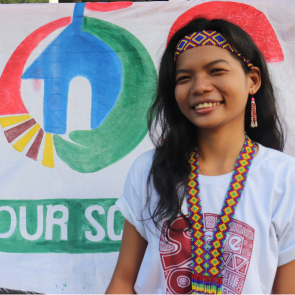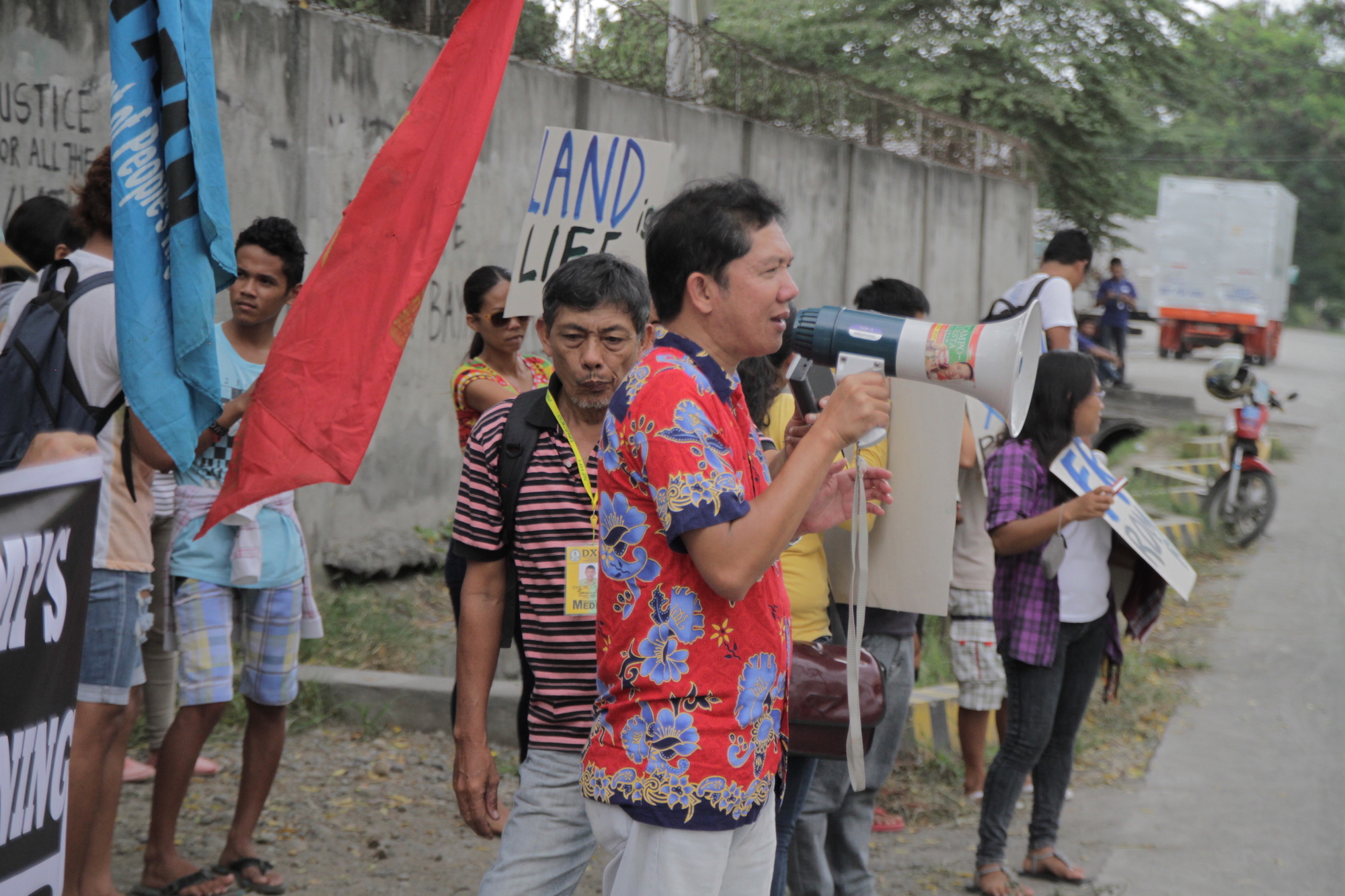
Jeany Rose Hayahay
Jeany Rose Hayahay is an indigenous woman human rights defender based in Mindanao, Philippines. She advocates for indigenous peoples’ rights, focusing on children’s right to education. Rose played a significant role in uniting indigenous and community-based schools in Mindanao and coordinated with national groups on a campaign to stop militarisation, environmental plunder and land grabbing of ancestral lands. She has faced violence from different authorities many times during peaceful protests, yet she has persisted in her cause with courage, leadership, and dedication. She became the spokesperson of the Save Our Schools Network (SOS Network) in 2019, a network of child-focused NGOs, church-based groups and other stakeholders who bring attention to, and take action regarding the ongoing violation of children’s right to education, particularly in the context of militarisation and attacks on schools.
Since the implementation of the “war on drugs” by the previous Duterte administration in 2016, human rights violations and impunity has become more rampant in the Philippines. The stringent laws and policies were aimed at small-time drug pushers and “addicts” but were also inflicted on human rights defenders to quash any dissent against the government. In 2018, the Philippines was declared as the most dangerous country for land and environmental defenders by Global Witness.
The Lumads of southern Philippines live in resource-rich hotspots for mining, plantation, and logging projects. Consequentially, anyone defending their rights from the impacts of exploitation have faced violence, displacement, red-tagging*, harassment, aerial bombings, and militarization. The environmental, cultural, and socio-political attacks that the Lumad community face continue to erode their culture, destroy the environment, and and marginalise them further. One of the most significant targets are the teachers and schools of the Lumad community. Red-tagging of the schools and teachers as well as bomb threats led to the forced shut down of 216 Lumad schools and disenfranchised at least 10,000 Lumad students. In July 2019, the Department of Education suspended the Lumad school which Rose taught at, accusing it of being a “training ground for rebels”.
Rose’s journey began as a volunteer teacher for the Lumad communities in Mindanao, during which time she raised awareness on the human rights violations the Lumads were facing. Beyond basic education, Rose also taught practical skills such as agriculture that would help students enrich their environment, culture, and defend their ancestral lands. Rose helped build a communal farm in several schools for students to have hands-on experience with agriculture.
Rose was a part of the ‘’Lumad Bakwit school” from 2018 until 2021, where hundred of indigenous students from southern Philippines gather in main cities to protest against human rights violations of indigenous and minority groups. As the spokesperson of SOS Network, she is at the forefront of many public gatherings, protests and meetings, and is consistently red-tagged and monitored as a leader, facing reprisals and threats, both directly and indirectly. She is at high risk of being killed, arrested or imprisoned yet continues to lead at the forefront with determination and courage.
* red tagging - blacklisting individuals or organisations who are critical of the government administration.

